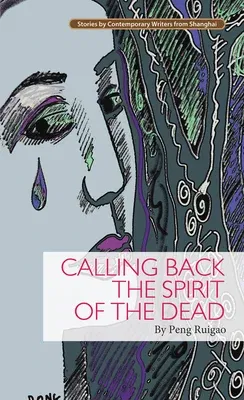This book of contemporary Chinese literature contains two separate
novellas, Calling Back the Spirit of the Dead and The Boarder by one
of China's most prolific writers.
Calling Back the Spirit of the Dead
In this story of intrigue and heartbreak, Peng Ruigao takes the reader
into the heart of a small town and peels away the layers of deceit and
corruption that have been surrounding many of its residents. In the
middle of the night, Ah Peng is called into the town offices and told of
the sudden death of Deputy Town Chief Wei Shouyi. The mysterious death
shakes up not only the town offices, but Party headquarters as well. Ah
Peng slowly unravels the strange events surrounding this mysterious
death of his best friend and colleague and exposes the complexity of the
relationships that have been simmering just below the surface of this
small town. Betrayal, corruption and romance all have a place in this
well-paced, beautifully described yet constantly surprising story. As he
unearths more and more details of the events surrounding and preceding
his colleague's death, Ah Peng discovers that his own past has been
subjected to the forces of jealousy and treachery as well and that
neither events nor people are what they seem. An artfully calibrated
mystery, this story draws the reader in and keeps surprising through
until the very end.
The Boarder
Peng Ruigao's prose set the tone perfectly for a tale of hardship and
perseverance in the Huanglou Township Secondary School. The school's
students must contend with the difficulty not just of being far from
home, but of the terrible shortage of food they suffer as a consequence
of famine in the country. Amongst the students of Class 6 of the ninth
grade, a bully named Liu Tingsong slowly contaminates the lives and
relationships of the other children at the school as he pushes them to
the brink of despair. The gentle Ma Xiaolong is subjected to persecution
because of his parents' deeds and political affiliations by staff at the
school, while others have their misbehavior overlooked as their parents
are in positions of influence. His suffering is alleviated in tender
moments of attention from the delicate and kind-hearted Luo Zhaoying who
sacrifices whatever she can to help him along. Underneath the cruel
behavior of the students there is a glimmer of hope in the loyalty and
kindness shown through tiny acts of generosity, loyalty and tenderness,
which sustain them through very difficult times. These moments provide
respite and redemption from the injustice the students have to endure
not just at the hands of their teachers, but the other students as well.
In a moving and lyrical tone, Peng Ruigao's beautiful and haunting
descriptions bring to life a very difficult time not only in the
children's lives, but in China's history.

